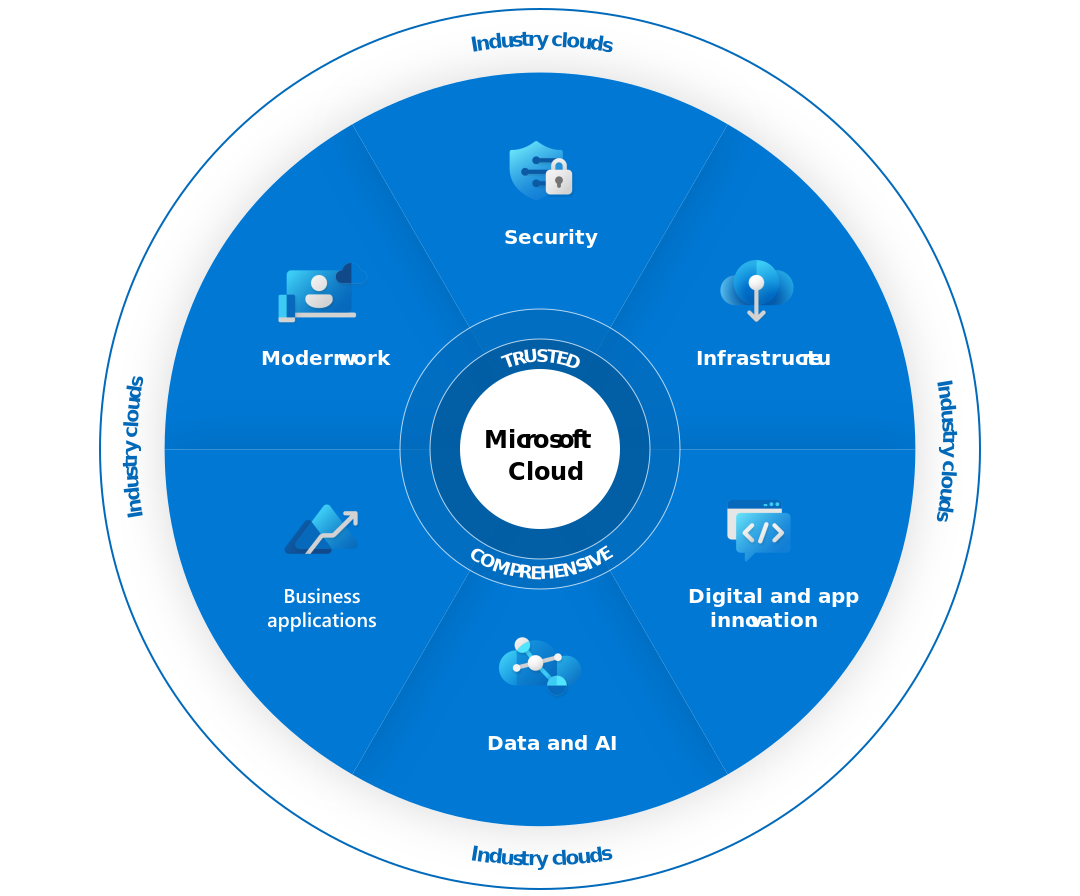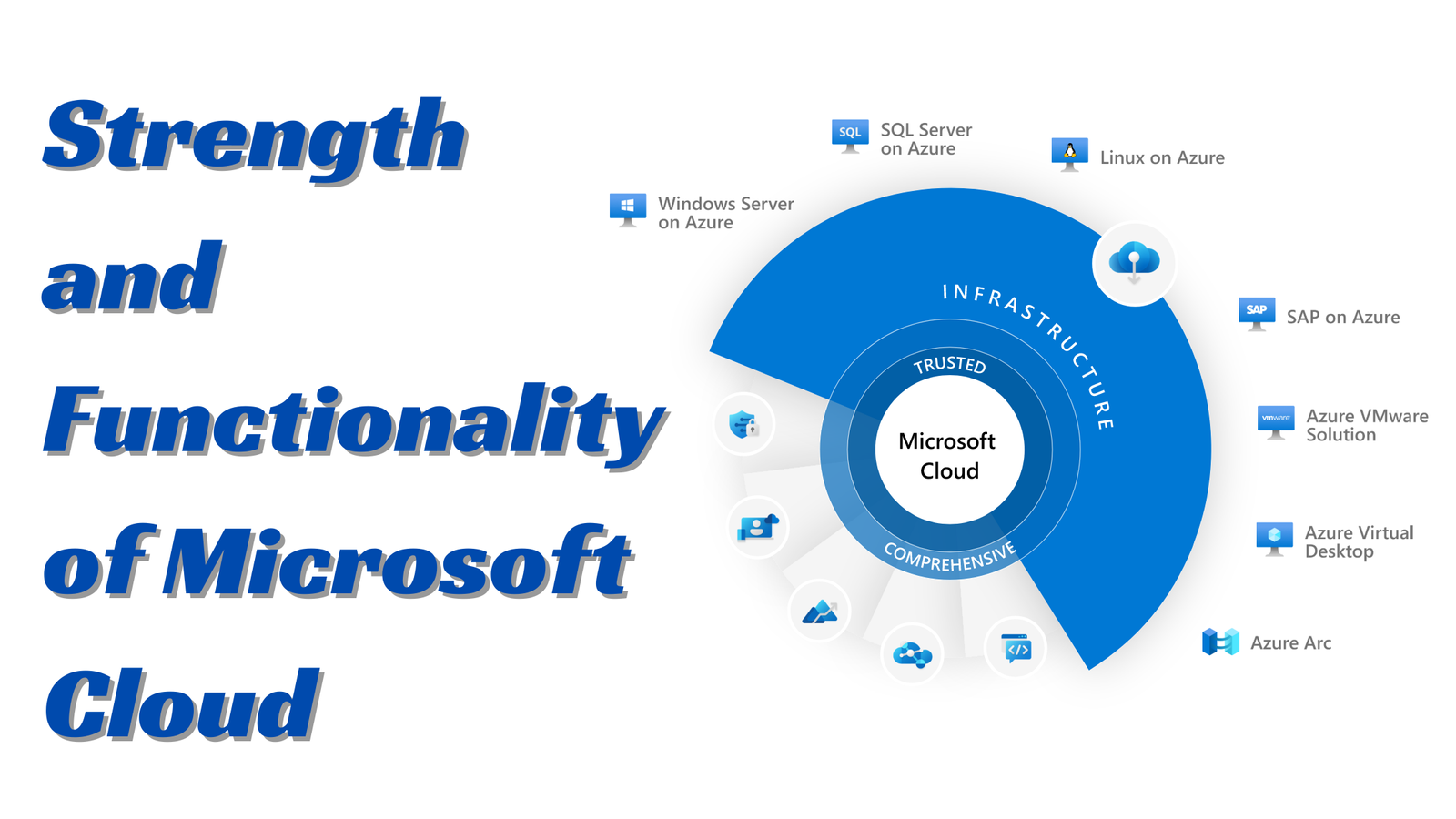Exploring the Strength and Functionality of Microsoft Cloud Services
- 1 Overview of Microsoft Cloud Services
- 2 Benefits of Microsoft Cloud Services
- 2.1 Integration and Collaboration
- 2.2 Security and Compliance
- 2.3 Cost Efficiency
- 2.4 Flexibility and Scalability
- 3 How Microsoft Cloud Services Transforms Businesses
- 3.1 Enhanced Productivity
- 3.2 Data-Driven Decision Making
- 3.3 Streamlined Operations
- 3.4 Innovation and Agility
- 4 Conclusion
The digital space is constantly evolving, and cloud computing is one of the features that has become a mainstay for everyday business operations today. There are several cloud solution providers, but Microsoft Cloud Services is one of the most prominent. This is thanks to the extensive arsenal of tools designed to cater to various business needs.
These business needs range from storage and management of data to the development of applications and AI integration. With Microsoft Cloud Services, companies can access unmatched security, flexibility, and scalability for their day-to-day operations.
Sometimes, small businesses or start-ups think these ‘extra’ tools are unnecessary, at least not until they have grown into conglomerates. But that is not true, as every business, no matter how small, deserves all the essential tools to facilitate and enhance its success. Click here to read this research report on strategies for strengthening small business success.
In this article, we will explore different features of Microsoft Cloud Services and their benefits. We will also look at how they come in handy for transforming business operations.
Overview of Microsoft Cloud Services
These services, which we will alternately abbreviate as MCS, comprise various solutions and products under the Azure Cloud Platform. They cater to different business needs, which include Platform as a Service (PaaS), Infrastructure as a Service (IaaS), and Software as a Service (SaaS).
Products and solutions include the following:
- Microsoft Azure is an all-encompassing cloud computing platform offering various services, such as IoT(Internet of Things)solutions, AI, databases, and virtual machines.
- Dynamic 365 – This is a group of intuitive business apps that combine the capabilities of Customer Relationship Management (CRM) and Enterprise Resource Planning (ERP) software to enhance the streamlining of business operations. This, in turn, improves engagement with customers and drives business growth and success.
- Microsoft 365 is a tool suite that enhances collaboration and productivity, integrated with cloud storage and management capabilities. This suite comprises Word, PowerPoint, Excel, Teams, and Outlook.
- Power Platform – This is a low-code platform that helps organizations customize apps and carry out data analysis and workflow automation without expert training or knowledge of programming.
Benefits of Microsoft Cloud Services

From the above overview of MCS, you can already infer how beneficial it is to businesses. However, we will go ahead and spell out the following benefits:
Integration and Collaboration
Microsoft Cloud Services seamlessly integrates with third-party apps and other Microsoft products. However, you will need a Microsoft 365 Tenant Assessment to help you determine and plan to optimize the existing environment. This helps to eliminate any vulnerability in your security and make it fit for effective collaboration.
You may have set up the Microsoft 365 tenant internally by following the default setting. However, it is essential to note that these configurations keep changing constantly. That is why you will need a Microsoft Tenant Assessment by CollabPoint or other experts in the field. Getting this assessment done by professionals will save you a lot of stress and make the integration and collaboration seamless and very effective.
Security and Compliance
Microsoft is big on security and compliance. It ensures its solutions provide comprehensive security features, including encryption, identity management, and advanced threat protection. In addition, it adheres to the standards and regulations laid down by the industry to ensure that companies meet compliance requirements.
Cost Efficiency
Companies that leverage MCS can reduce the infrastructure cost for their IT needs. The pricing model, Pay-as-YouGo, allows businesses to pay only for the resources they use, thereby removing the need for expensive capital expenditures. This benefit comes in handy for SMEs that need to cut as much cost as possible without affecting the efficiency of daily operations.
Flexibility and Scalability
One of the significant benefits of Microsoft Cloud Services is scalability. This allows businesses to scale operations up or down depending on their need without having to incur additional costs from investing in hardware. This makes the solutions flexible, allowing companies to adapt to market trends and maximize their resources quickly.
How Microsoft Cloud Services Transforms Businesses
As an extension of the benefits of Microsoft Cloud Services, there are many ways that MCS can transform a business. We discuss some of these ways below:
Enhanced Productivity
These solutions provide tools employees need to carry out their daily tasks from wherever they are; this greatly enhances productivity. Team members can collaborate in real-time with cloud-based apps and storage. They can also stay connected through integrated platforms such as Teams, designed for communication.
Data-Driven Decision Making
Businesses are empowered to make decisions based on proven data, thanks to the integration of advanced analytics, machine learning, and Ai in these services/solutions. With tools such as Azure Machine Learning and BI, organizations can analyze a large amount of data to uncover insights and accurately predict incoming trends.
Streamlined Operations
Companies can also leverage cloud-based CRM and ERP solutions such as Dynamics 365 to streamline daily operations, optimize supply chains, and enhance customer engagement. With these integrated applications, businesses have a unified view of their processes, enabling them to coordinate them better and more efficiently.
Innovation and Agility
MCS promotes innovation and agility by giving companies the infrastructure and tools necessary for developing and deploying new applications as fast as possible. With low-code apps such as the Power Platform, businesses can create customized solutions unique to their needs without substantial resources for development.
Conclusion
Microsoft Cloud Services is a game changer for any business, and we have explored different facets of these services. We believe this article has helped you to appreciate the importance of these solutions and how you can use them to transform your business and remain on top of your game despite the ever-evolving landscape of the digital space.

















